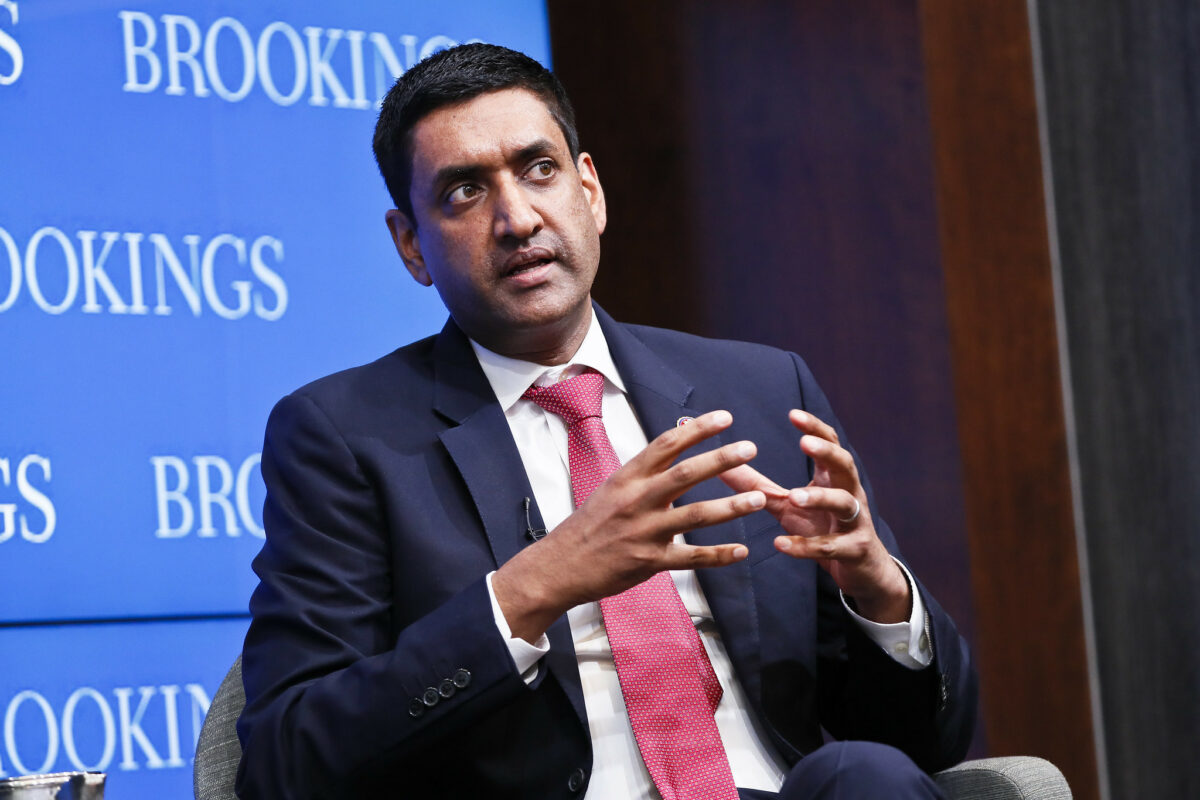Leading progressives—including Sen. Bernie Sanders and Reps. Ro Khanna and Pramila Jayapal—reacted with opposition and disbelief Thursday evening after Elizabeth MacDonough, the chief Senate parliamentarian, issued her belief and guidance that inclusion of a federal minimum wage increase in the pending Covid-19 relief package does not qualify for the budget reconciliation process that would allow the bill to be passed by the chamber with a simple majority.
“I strongly disagree with tonight’s decision by the Senate Parliamentarian,” said Sanders in a statement. Citing recent reviews by the Congressional Budget Office (CBO), which showed the outsized impact that raising the wage would have on the federal budget, the Vermont lawmaker and current Senate Budget Committee chairman—who has made raising the federal minimum a cornerstone of his presidential campaigns in both 2016 and 2020—said the assessment wildly missed the mark.
“The CBO made it absolutely clear that raising the minimum wage to $15 an hour had a substantial budgetary impact and should be allowed under reconciliation,” Sanders said. “It is hard for me to understand how drilling for oil in the Arctic National Wildlife Refuge was considered to be consistent with the Byrd Rule while increasing the minimum wage is not.”
Sanders was far from alone in condemning the absurdity of the decision and the procedural system that empowers the parliamentarian with such authority. As Rep. Ro Khanna (D-Calif.) put it: “Amazing that American democracy has landed in a place where some unheard of parliamentarian ends up deciding whether or not a law gets passed to give millions a raise. Simple question: are you on the side of structural reform in standing up to this system or for the status quo?”
According to Rep. Pramila Jayapal, chair of the Congressional Progressive Caucus, “The ruling only makes it more clear that the Senate must reform its archaic rules, including reforming the filibuster to allow populist and necessary policies like the $15 minimum wage to pass with a majority of the Senate.”
“We must deliver,” she added, “on the promise we made to voters all across this country: that we would give 27 million workers a long-overdue raise and lift one million people out of poverty during this devastating economic crisis.”
Warren Gunnels, one of Sanders’ top aides who has been working for weeks to present the policy and economic case for reconciliation to the parliamentarian’s office, agreed with other outside critics that the issued guidance was deeply flawed.
For his part, Sanders said he and other Democrats who ran on the promise of getting the minimum wage increased passed are not done fighting.
“60 percent of the American people want to raise the minimum wage to $15 an hour,” he said. “The House of Representatives has voted to raise the minimum wage to $15 an hour. The President of the United States wants to raise the minimum wage to $15 an hour. I’m confident that we have a majority in the United States Senate, including the Vice President that would vote to increase the minimum wage to $15 an hour as part of President Biden’s American Rescue Plan. Yet because of the archaic and undemocratic rules of the Senate, we are unable to move forward to end starvation wages in this country and raise the income of 32 million struggling Americans. That fight continues.”
While Senate Majority Leader Chuck Schumer said Democrats were “deeply disappointed” in the decision by the Senate Parliamentarian, he also vowed not give up on the popular goal to raise the wage.
“We are not going to give up the fight to raise the minimum wage to $15 to help millions of struggling American workers and their families,” Schumer said in a statement. “The American people deserve it, and we are committed to making it a reality.”
Strikingly, CNN reported Thursday night—citing an unnamed official within the Biden administration—that the White House was likely relieved, not upset, by the ruling. According to the outlet:
White House officials, cognizant of the potential math problem with Senate Democrats if the minimum wage increase were in the final package, had been counting on the provision being stripped, the administration official told CNN.
While there had been discussions about what would occur if it weren’t, President Joe Biden’s top advisers were fairly certain it would come out—something Biden himself alluded to several times publicly.
While experts have repeatedly noted that Vice President Kamala Harris, who operates as President of the Senate and the deciding vote in the 50-50 divided chamber, has the power to override the guidance of the parliamentarian, the White House has made clear publicly their intention at this point is not to do that—a position pilloried by progressives.
Joseph Geevarghese, executive director of Our Revolution, responded to the development by also calling on Vice President Harris to step in to disregard or overrule the guidance.
“Our Revolution strongly condemns this arbitrary finding that the $15 per hour minimum wage increase should not be considered under fast-track rules,” Geevarghese said in a statement. “The fact that the future of a desperately-needed policy, which is supported by the vast majority of Americans, is being dictated by an unelected congressional staffer is an unconscionable affront to our democracy.”
“Harris must fight for $15 like she promised on the campaign trail by overturning the Senate parliamentarian,” he added. “Madam Vice President, there is no next time—fight for $15 NOW. Workers have been striking for $15 and a Union since 2013—it’s way past time for our leaders in Congress and the White House to stand with workers.”
This article first appeared at Common Dreams and is republished with permission.
